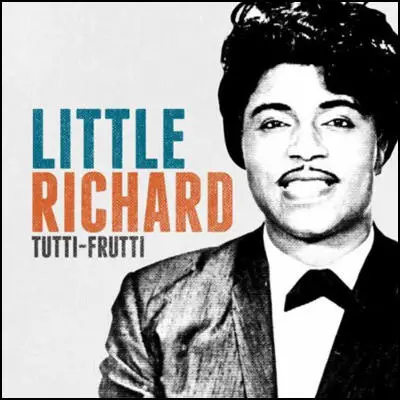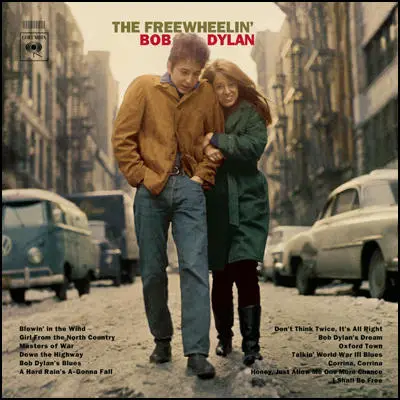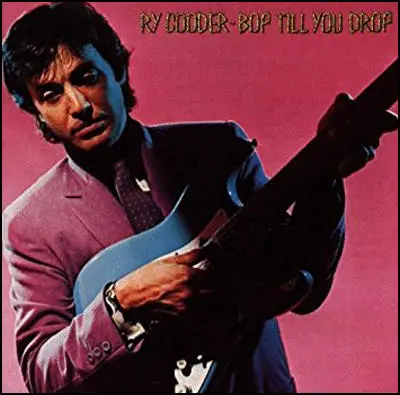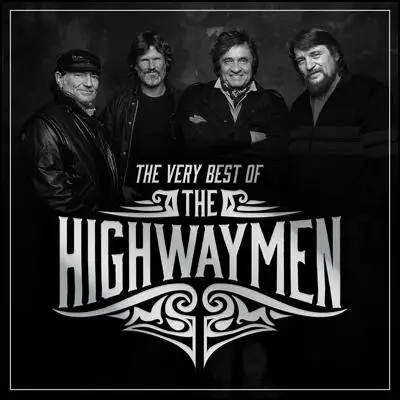Musical Memories of Edward Peckham
First perhaps a little (musical) background. We were well off until my parents divorced. There were books, but no records until I acquired some in my teens. I don't recall my father having any interest in music, my mother liked some music ; opera, Verdi and Pucinni, the singer Maria Callas, Jim Reeves and some crooners, Perry Como, Andy Williams, but not much else. My musical tastes are all my own.
First record I remember actively seeking out was Tutti Frutti by Little Richard. I also had Tommy Steele records, but I didn't stick with rock'n'roll or rhythm 'n' blues when skiffle came along. However I did return to rock'n'roll etc. later in life.

Skiffle and Lonnie Donegan lead me to the blues via Woody Guthrie, Lead Belly, Sonny Terry and Brownie McGhee. I have loved blues in all its form ever since, but at that time I only really knew about country blues. Also records were few and far between. This track, Get Back, is by Big Bill Broonzy, in my view, one of the greatest (and most sophisticated) of the country blues singers.
Early on two books had a profound influence on me: The Outsider by Colin Wilson and On the Road by Jack Kerouac. After reading Kerouac I thought I would need to appreciate jazz. I finally tracked the record Mulligan Meets Monk to Dobell's record shop in London and found that I was too naive to get much out of it. Only much much later did I come to some understanding of its value. This is Gerry Mulligan and Thelonious Monk playing Round Midnight.
I first heard or saw (on TV) Bob Dylan about the time that his second LP, The Freewheeling, came out. I bought this and within a week I went out and bought his first LP, Bob Dylan, as well. I then bought each of his next LPs when they came out or soon after until his LP Self Portrait in 1970. I have never seen him live. I was going to go a few years ago until I found out how much the tickets were, over £100 to stand. The track I have selected is A Hard Rain's Gonna Fall.

I came to Joan Baez through her association with Dylan. She was a bigger figure in American folk circles for several years than Dylan and she helped his career initially. He sang at the Martin Luther King March on Washington because of her. I particularly liked the fact that she sang such diverse songs and this ballad, The Trees They Do Grow High, is a good example of this.
There were several broadcasters who influenced my musical tastes. John Peel's Perfumed Garden, which I came too late in it's run. Charlie Gillett's Honky Tonk, Stuart Colman's Echoes and the show Alexis Korner did for the BBC. Mimi Fariña and Richard Fariña I first heard from John Peel and this is a song about Dylan. The Falcon is also an early example of folk rock, a genre I am greatly fond of.
I was never a fan of the Beatles, it was the Rolling Stones I liked. Their sound was based on the Muddy Waters band and I could of chosen a track by Muddy or the Stones to illustrate urban or Chicago blues. In homage to Little Red Rooster by the Stones I have chosen Smokestack Lightning by Howlin' Wolf. I once saw an interview with Muddy and he was asked who his competion was. He replied "There was only me and the Wolf".
I liked Leonard Cohen the first time I heard him. Also, like several other singer/songwriters, he was Canadian. He was clearly literate and didn't take himself too seriously. He was always to some extent in Dylan's shadow, but he had fans who were equally devoted. I always felt you could like them both. I saw him in London in the 80s and he was brilliant. I have chosen Bird on the Wire.
My first job in the health sevice was at one of the big psychiatric hospitals in Surrey. They had art therapy at "The Pottery Shed" and I became friends with the art therapist. He introduced me to some music, including the jazz of Count Basie. Lester Young was one of the greatest jazz saxophonists and Billie Holiday one of the great vocalists. They had a special rapport, he called her "Lady Day" and she called him "Prez". Fine & Mellow was a song they recorded more than once.
In the world of Bebop, Charlie Parker and Dizzy Gillespie were the founding fathers. Miles Davis, who I greatly admire, was then a minor player and it was Fats Navarro who was seen as the up and coming bebop trumpeter. This is a fine example of his style. Sadly he was to die in 1950 at only 26 and Parker would also die in 1955. This track is called The Chase.
For 3 years (1979-81) I attended an evening class on Country Music at Morley College in London. Country is looked down on by some people, but it has many sub-genres. This is an example of contemporary Western Swing. A type of music from the Texas area, playing "swing" music in a "sophisticated" string band style. There was no brass or reed instruments and there was a long-standing ban on drums at the Grand Ole Opry. the self-styled home of Country Music in Nashville. This is Asleep at the Wheel playing Miles & Miles of Texas.
Fairport Convention are an English folk rock who started out trying to sound like American groups. By their fourth album Liege & Liefy in 1969 and with their singer Sandy and a fiddle player Dave Swarbrick, they were playing old English folk songs as well as new songs. They also had a virtuoso guitar player Richard Thompson, who could write songs which sounded old. Matty Groves, also known as "Little Musgrove" among other variations, is a genuinely old "Border ballad" and part of a sub-genre called murder ballads.
I heard Ry Cooder being interviewed by Charlie Gillett on his radio show. The musical genre Americana was first coined in the 1990s, but artists like Cooder and Randy Newman, among others, had been making those sort of records before that. This track comes from his first album where he sings old songs and (on the cover photo) wears old clothes. He is also a noted slide or bottleneck guitar player as well as playing mandolin. I still have a number of his records. This track is called How Can A Poor Man Stand Such Times & Live.

I came late to classical music. When we lived in Bristol for many years, there was at the top of Park Street, a 'record' shop, specialising in classical music and they had a permanent sale. I bought the Paul Tortelier CD this track is from some time after hearing the famous Jacqueline du Pré version of the Elgar Cello Concerto in E Minor.
A French CD of Glenn Gould we have, was another purchase from the shop in Park Street. I saw a 'documentary' film about him and became interested in this talented and eccentric classical pianist who specialised in playing Bach. This is Gould's Goldberg Variations BWV 988 Aria.
I am not religious, but I like very much the sound of much early church choral music. The work of William Byrd, Thomas Tallis, Giovanni Pierluigi da Palestrina and the like. This track is considered by many to be Tallis's finest work and I do find the sound to my taste. This track, Spem In Alium, is by Peter Philips and The Tallis Scholars. Also within much Americana there is this split between "the devil's music" and "gospel" and other religious sounds.
Richard Thompson, the only artist who features twice on my playlist, left Fairport Convention in 1970 and had a brief solo career. Next he formed a duo with his then wife Linda and, when his marriage broke up, so did the duo. I have seen him twice in Brighton in recent years and both times he sang this song, Beeswing. It appeals to my sentimental side and is one of the songs that would be on my playlist, even if I were to change most of the others. The internet fan site dedicated to Thompson is called "beeswing". There has been much speculation as to who it is about, the English folk singer Anne Briggs is a popular candidate, but Richard has said that he has only met her twice and both times she was drunk.
The Trio - Dolly Parton, Emmylou Harris and Linda Rondstadt were a female country music super group. Dolly is the un-crowned queen of country music and Emmylou helped to introduce country music to rock audiences along with Gram Parsons, the Byrds, the Eagles and other artists. Linda was a highly rated rock artist who also performed country rock for a good part of her career. This track, Farther Along, is also an example of gospel music which has been a strong theme through out country music.
I am not knowledgeable about the classical music genre called Lieder. I believe much of it consists of song cycles and Schubert is cosidered to be one of the leading figures in Lieder. I have only started listening to the song cycle called Winterreise recently and this recording by Hans Hotter has been commended to me as a very good example of Schubert's art in performance. Like the Thomas Tallis, it is the sound that appeals to me rather than the words or sentiments expressed.

The Trio are a female super group and the Highwaymen are a male country music super group. Most people have heard of Johnny Cash, while Willie Nelson, Waylon Jennings and Kris Kristofferson may be a bit more obscure. They were all part of the 'outlaw' country movement and Kristofferson recently made his debut at Glastonbury at the age of 80. I saw Johhny Cash in London in the 80s and he was a great singer and showman, not to mention a direct link to the rock'n'roll and rockabilly roots of Sun studios and Elvis Presley, Jerry Lee Lewis and Carl Perkins. This song, Desperados Waiting For A Train, was written by Guy Clark, another country singer/songwriter who upheld the traditions of this group of famous country 'outlaws'.
